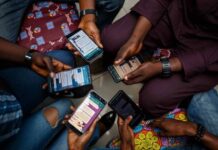IWD: Women’s Education – A command, a right, a life, here and hereafter!, by Aisha M Auyo
International Women’s Day holds immense significance as a global observance dedicated to celebrating the achievements of women, promoting gender equality, and raising awareness about the challenges women face. It serves as a reminder to acknowledge and appreciate the contributions of women in various fields, while also highlighting the ongoing efforts to address gender disparities. The day fosters a sense of solidarity among women worldwide, encouraging discussions and actions to advance women’s rights and opportunities.
The theme for IWD 2024 is “Invest in Women: Accelerate Progress”. It highlights the importance of women’s and girls’ empowerment and their rights to healthier lives.
I plan to pen this article from a religious and social perspective because many have been hiding behind the curtains of religion to deny women their basic right to education and empowerment.
Without question, education for women and girls is an integral part of Islam.
In the Holy Quran, Allah orders both men and women to increase their knowledge and condemns those who are not learned. The very first revelation to Prophet Mohammed (ﷺ) starts with the word read and says:
“Read. Read in the name of thy Lord who created; [He] created the human being from a blood clot.
Read in the name of thy Lord who taught by the pen: [He] taught the human being what he did not know.” (Q96: 1-5)
In addition to the clear stance of the Qur’an on knowledge acquisition by every Muslim woman and man, the Prophet is also reported to have said (hadith): “The acquisition of knowledge is the duty of every Muslim man and Muslim woman” (Rahman 1980, 397).
From the above verse and hadith, we can conclude that
- GIRLS’ EDUCATION IS A DIVINE COMMAND
The obligation for women and men to study is also confirmed by the hadith and the sunnah. Preventing women and girls from receiving education is preventing them from fulfilling the divine obligation commanded by Allah and intervening with their akhirah, or afterlife.
- GIRLS’ EDUCATION IS A DIVINE RIGHT
Education of girls is central to their faith because it increases their knowledge, teaches them how to use their intellect, furnishes them with critical reflection skills, and makes them better Muslims and better members of their communities. It allows girls and women to make use of the gifts Allah has given them.
Preventing women and girls from receiving an education is preventing them from fulfilling the divine obligation commanded by Allah and intervening with their akhirah, or afterlife.
Prophet (Pbuh) Invested in the Education of Girls
Since the early years of Islam, learned women enjoyed high public standing and authority. The Prophet (ﷺ) made an effort to educate women and girls and encouraged his wives and daughters to learn and be educated. He held classes for women, and women were often present in the public assemblies that came to learn from the Prophet (ﷺ). Women in his household received education not only in Islamic sciences but in other fields such as medicine, poetry and mathematics, among others. He made arrangements for training women in the commandments, fixing one day a week to meet with them.
READ ALSO:Dear men, without your support, we can not be the wives you need, by Aisha Musa Auyo
Aishah and Umm Salamah (ra) are among the greatest narrators of hadith. Much of what Muslims practice today in terms of their religion is transmitted via the education of these two great women. The world’s first institution of higher education, the University of Qarawiyyin in Morocco, was established by a Muslim woman, Fatima al-Fihriyya.
How the society benefits from educating women
“Education is the only way to empower them [girls], improve their status, ensure their participation in the development of their respective societies, and activate their role to be able to take responsibility for future generations.”
– Dr. Yousef bin Ahmed Al-Othaimeen, secretary-general of the Organisation of Islamic Cooperation
Education is more than the ability to read and write. It is a process of acquiring knowledge, skills, and values in a variety of different areas that enable individuals to contribute to the social, economic, and political well-being of their families and communities in meaningful ways. Without educating its citizens, no society can develop and prosper.
The concept of knowledge in Islam covers a broad spectrum of subjects. The Quran describes the breadth of knowledge as vast and says that learning embraces both the religious and the secular. Many verses of the Holy Quran invite the reader to ponder and meditate about the creation of the universe. Thus, it is wrong to allow women to partake only in the study of religious sciences and prohibit them from a wider scope of education.
Some of the benefits of educating women include the following:
Educating girls contributes to stronger economies and alleviates poverty. Economic development and reducing poverty require countries to benefit from the talents, skills, and productivity of all their citizens, both men and women. Reducing the gender gap and educating girls in science, technology, engineering, and mathematics (STEM) will help reduce the skills gap, increase the employment and productivity of women, and reduce occupational segregation.
Educating girls leads to healthier and happier families because as mothers, educated women make better and more informed decisions for the well-being of their children, including protecting them against disease.
When women are educated, violence is lowered, and children have better psychological well-being and are happier.
Ways to invest and accelerate women’s progress
Investing in women for societal progress involves addressing various aspects to empower them holistically. Here are key areas for investment:
Education: Ensure access to quality education for girls and women. Support scholarship programs, mentorship initiatives, and STEM education to bridge gender gaps.
Healthcare: Invest in women’s health services, including reproductive health, maternal care, and mental health support. This contributes to healthier communities and improves overall well-being.
Economic Opportunities: Promote equal economic opportunities by supporting women entrepreneurs, providing training, and encouraging workplace diversity. This enhances financial independence and contributes to economic growth.
Legal Rights: Advocate for and invest in legal frameworks that protect women’s rights. This includes combating gender-based violence, ensuring equal pay, and promoting workplace policies that support work-life balance.
Technology and Innovation: Encourage women’s participation in technology and innovation sectors. Investing in programs that provide skills training and mentorship can bridge the gender gap in these rapidly evolving fields.
Community Engagement: Invest in community-based programs that empower women, addressing social and cultural barriers. This can involve awareness campaigns, support groups, and grassroots initiatives.
Media Representation: Support initiatives promoting positive and diverse portrayals of women in media. This contributes to changing societal perceptions and breaking stereotypes.
By investing comprehensively in these areas, societies can foster an environment where women have equal opportunities, contribute significantly to various sectors, and play vital roles in societal progress.
Let us unite in a collective call to action for continued support of women’s empowerment. Support, sponsor, and encourage the women and girls around you. By standing together, we can accelerate progress towards a future where women’s rights are not just acknowledged but celebrated, ensuring a more equitable and prosperous world for everyone. The journey towards women’s education and empowerment requires each one of us to play a role – let’s commit to this shared mission and create lasting change.
Happy International Women’s Day to all the women, and the men who allowed, supported, sponsored, and encouraged women’s education and empowerment.
Aisha Musa Auyo is a Doctorate researcher in Educational Psychology. A wife, and a mother of three. She is a Home Maker, caterer and parenting/ relationship coach.
Follow the Neptune Prime channel on WhatsApp:
Do you have breaking news, interview request, opinion, suggestion, or want your event covered? Email us at neptuneprime2233@gmail.com




